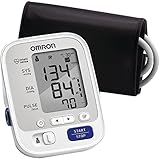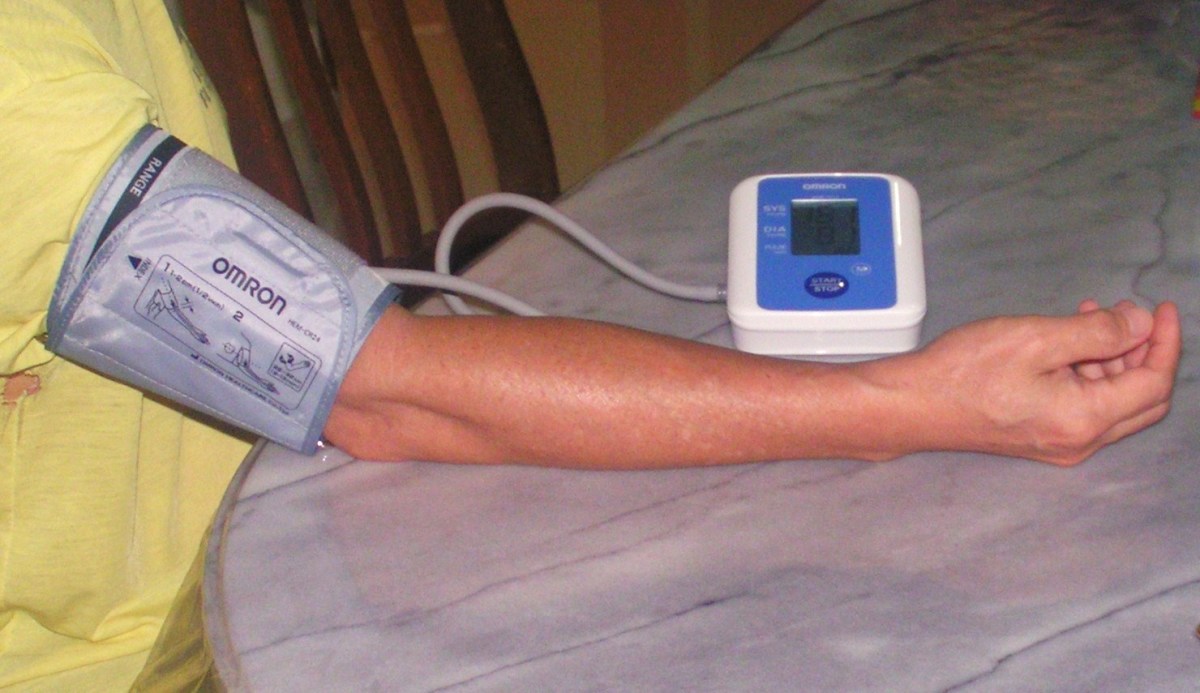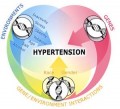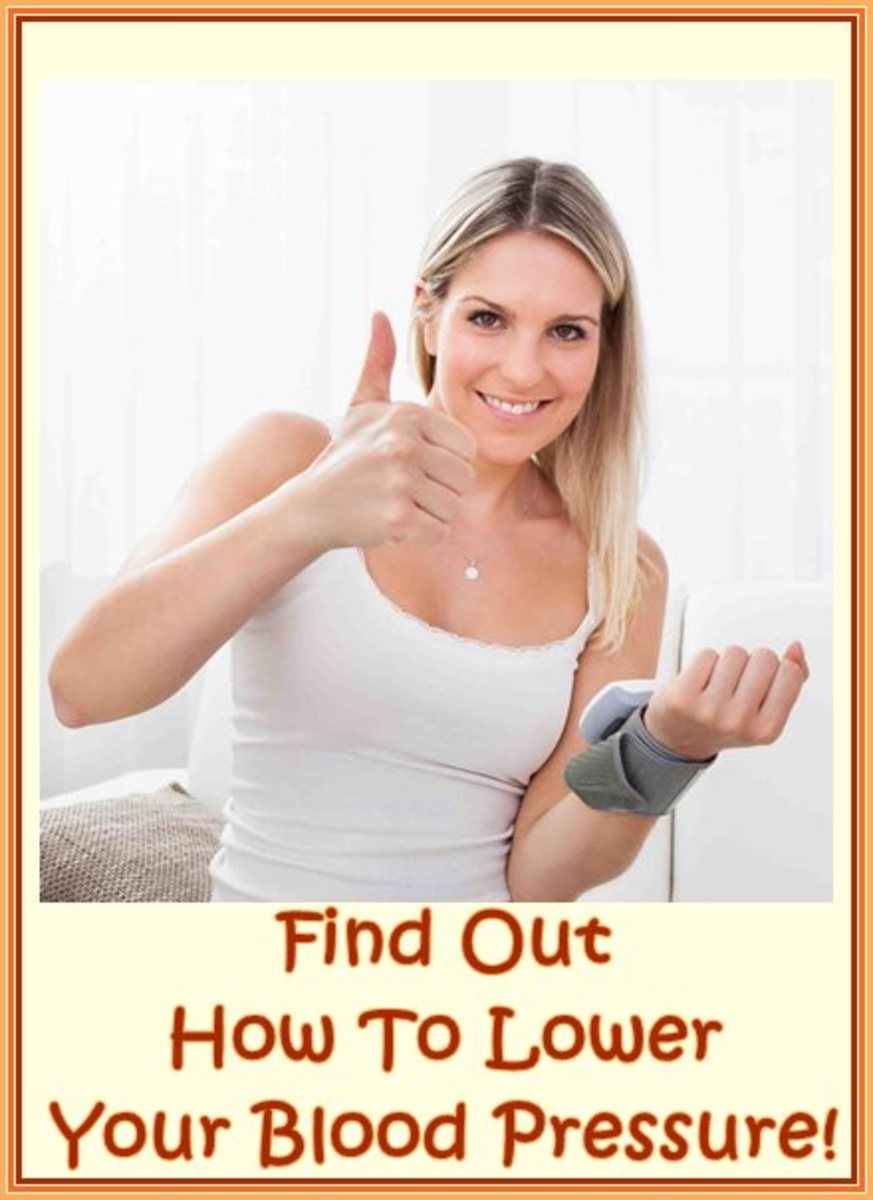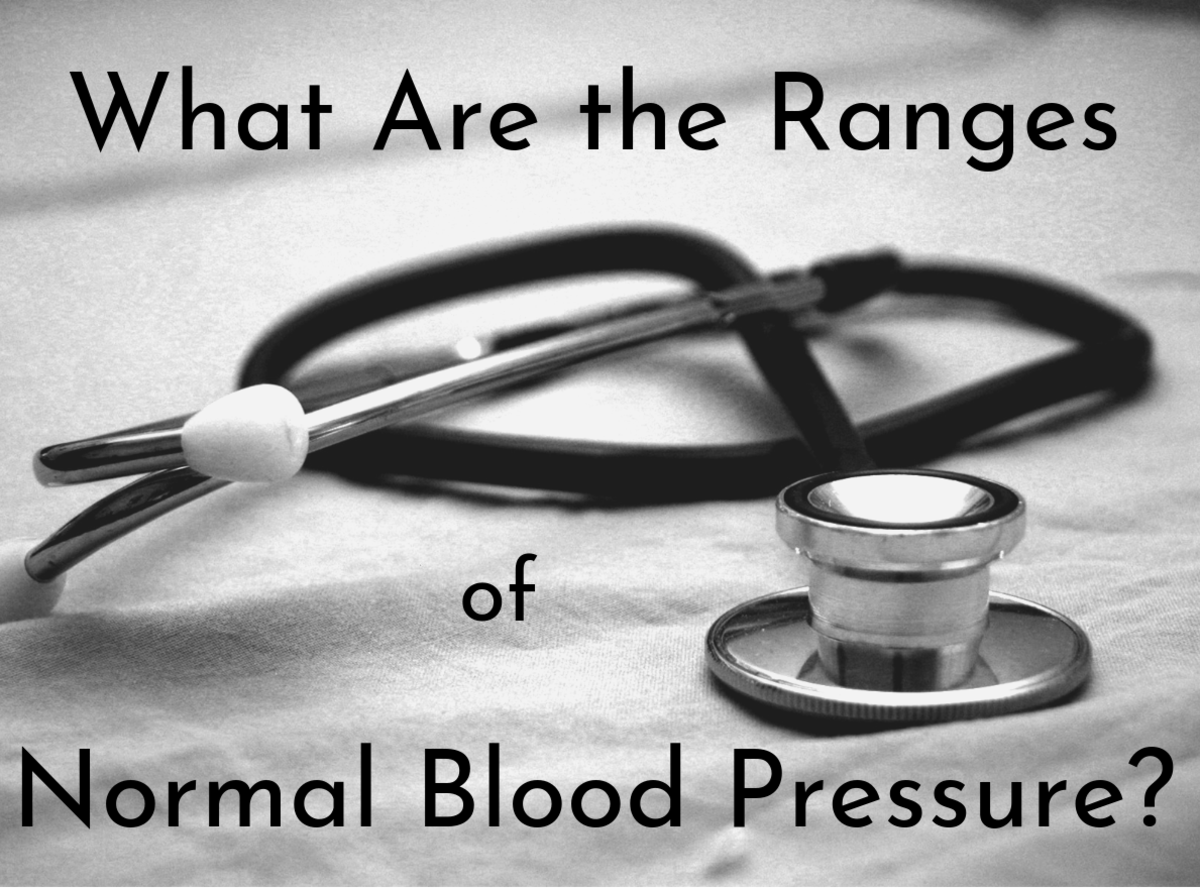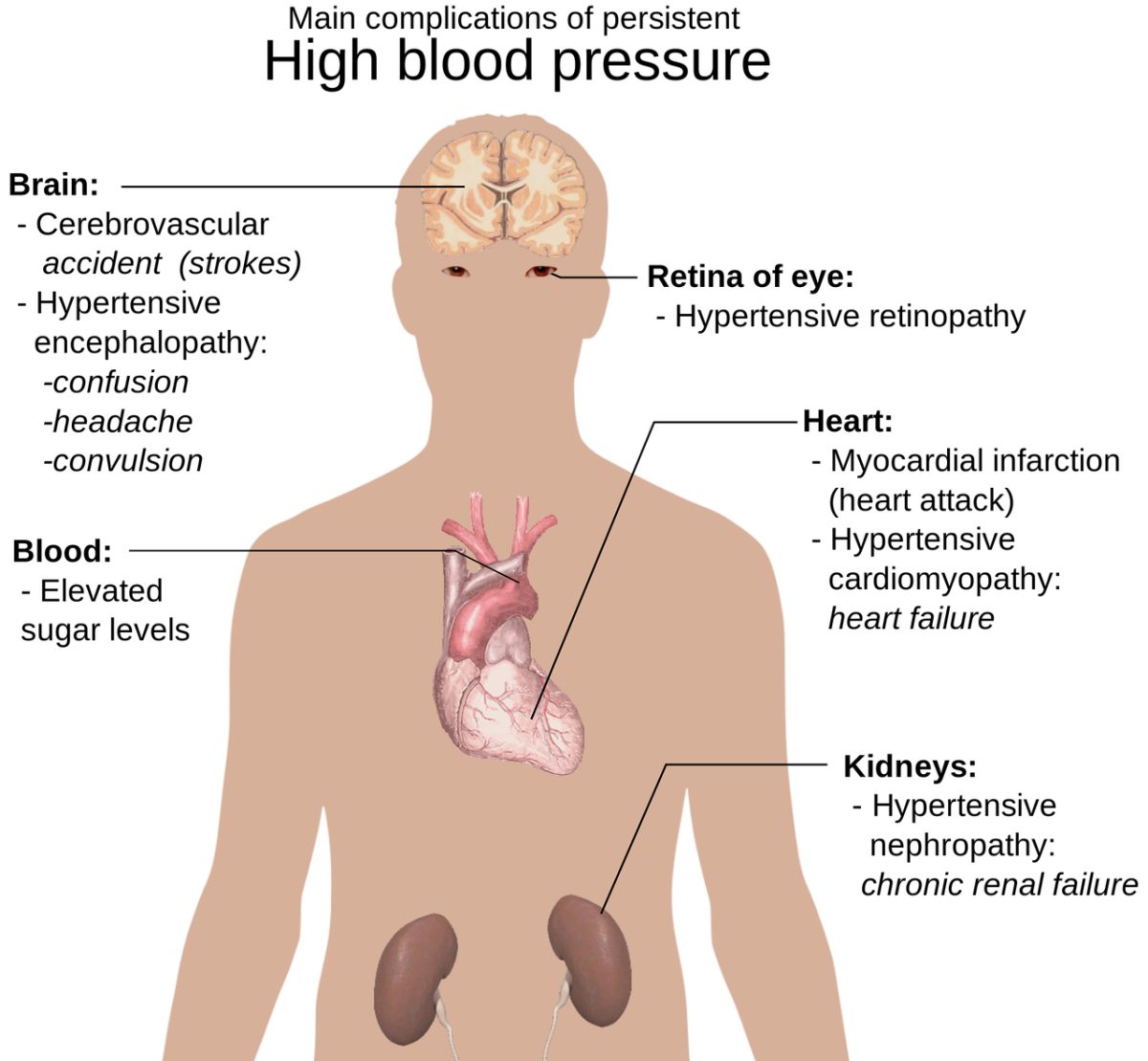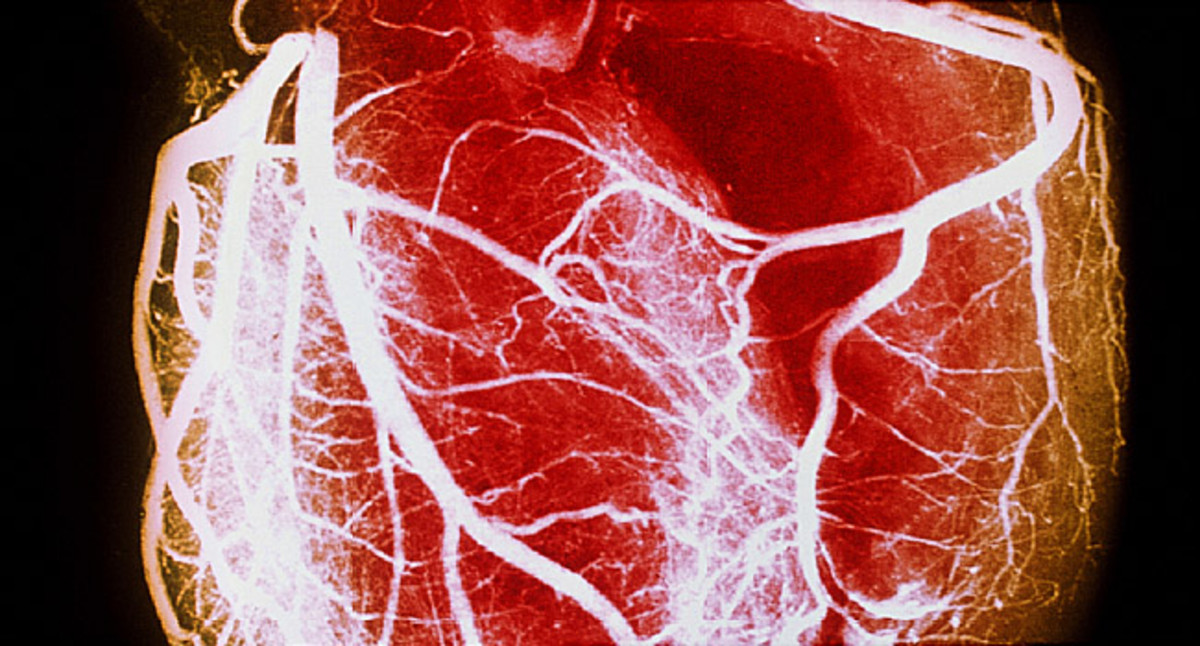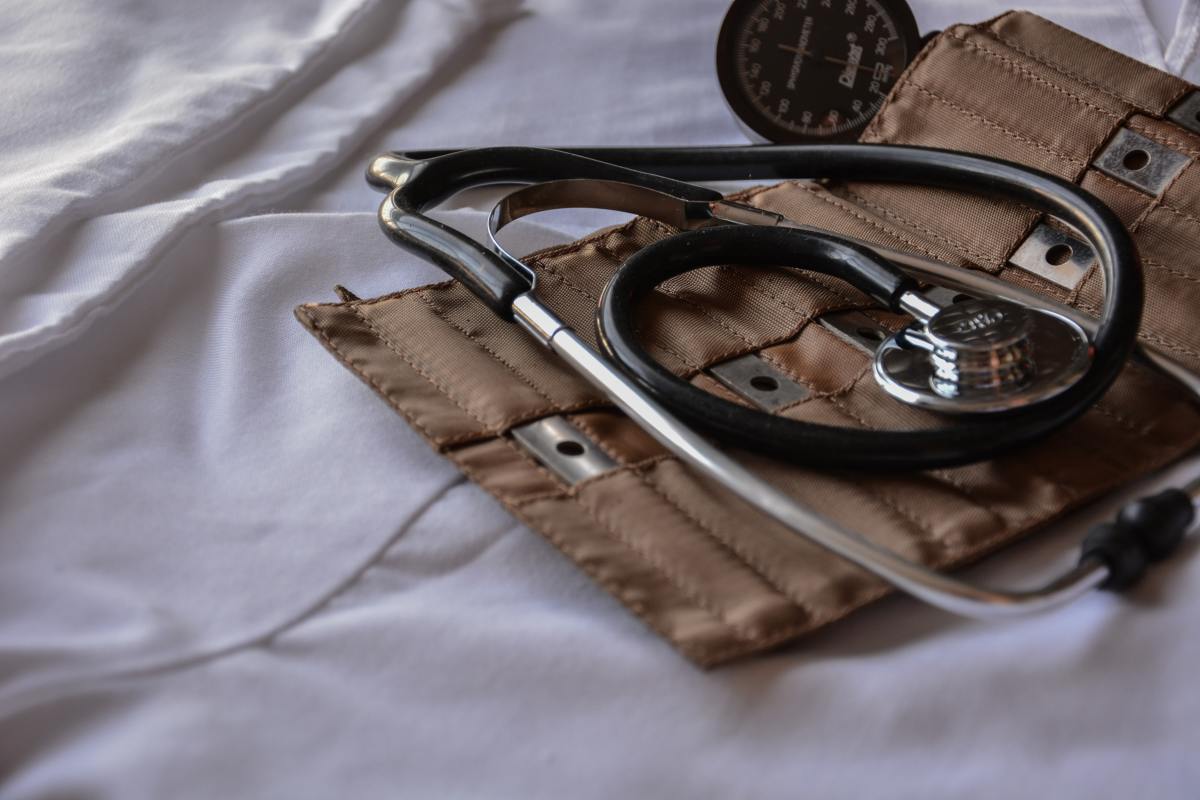Blood Pressure - It's All About Your Number's
Attempting To Control Anger Is One Way To Keep Your Pressure Down, Otherwise You Just May Blow Your Top
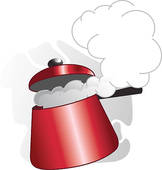
When we think of the word pressure, what usually comes to mind is something that exerts force, or pushes against another object. The same idea or thought applies when we speak about force exerted on our inner arterial walls. Hence blood pressure in essence, is the amount of pressure inside of our blood vessels As a result of blood being pumped away from the heart. Pressure that is exerted on the inner walls of those vessels, due to the contraction and relaxation of our heart.
Too much pressure within a pressure cooker boiling away on the stove for example, will eventually spew water all over onto its sides and eventually blow the lid off. The same principle applies to the continual force of blood ejected from your heart that is constantly being pushed against major arteries in your heart and brain. Too much of this force over a given time period can be dangerous to you, because it can lead to High Blood Pressure, as well as many other diseases like diabetes for example.
But what exactly is considered too high when it comes to blood pressure? There are certain parameters, that organizations such as the (CDC)-Center's for Disease Control for example. That use in setting guidelines when it comes to normal blood pressure.
When your physician or another health care provider takes your blood pressure with a device called a blood pressure cuff (Syhmomanometer) they are looking at two different measurements. They take these measurements into consideration based on what the American Heart Association has set as a norm.
There are two different measurements of blood pressure, as previously mentioned that your doctor assesses. The term given to the higher of the two numbers is called Systolic and the lower of these two numbers is termed the Diastolic reading. Systolic blood pressure is based on systole, or the first beat that is ejected or pumped out of your heart.
The lower of the two numbers that determine your overall resting blood pressure, is called the Diastolic, or simply put - the bottom number. During diastole, your heart is said to be in the relaxation mode upon preparing for systole again. Both the higher number - (Systolic) and your lower BP number, referred once again to as (Diastolic), are Blood Pressure readings both of which are equally important.
But some health care professionals place more emphasis on the lower number or diastolic. In most cases, depending on the individual's given health condition. Also age, overall health and weight for example, all play an important part in determining a diagnosis of Hypertension.
A normal blood pressure reading for an individual, whether male or female, is 120/80 to about 140/90. Any reading of about 140/90 or higher is considered mild or essential hypertension. Over the past few years however these ranges have changed and most health care professionals are now stating that readings even below 120/80 are better. (e.g.) 118/70.
In other words the lower your pressure the better! However too low of a blood pressure even though associated with longevity, could also lead to problems later on. The term used for low blood pressure is referred to as hypotension. If you have hypotension consider yourself somewhat fortunate, in that you may never need to take drugs that reduce blood pressure, for the rest of your life to normalize it.
These readings are based mainly on when you are in the doctors office and are at rest. Someone who for example is outdoors pushing a lawnmower may have a higher blood pressure than someone who is just sitting in a chair.
Athletes for example, usually not only have lower blood pressures because of the continual exercise regimens that they are often engaged in. But also they tend to have a resting pulse that is forty to fifty beats per minute during rest. A normal pulse in a man is sixty to eighty beats per minute. In a woman this number is slightly higher and is about eighty to one-hundred beats per minute at rest.
A normal blood pressure can sometimes also be determined based on your age. For example, if you are thirty years old, your Systolic or top number should be no higher that 130 ml.of Hg. Ml, stands for milliliters, while Hg, stands for mercury. Millimeters of Mercury. This equation is utilized in increments of two, until you have reached age 40 for example. Or the number has reached 140 ml Hg. systolic. As previously mentioned, a single blood pressure reading over that number,an be considered high.
Another important factor to consider is one where healthcare professionals over the past decade have been not only assessing blood pressure in one arm. The left arm for example, but both arms-the left and right. There are a number of reasons for taking blood pressure in both arms.
One is if the blood pressure is significantly higher in one arm than the other for example. There is a cardiovascular related condition called coartaction of the aorta. With coartaction of the aorta there is usually a narrowing in the aortic arch, or possibly somehere else along the aorta. Besides the Aortic arch there is the descending and ascending portions of the aorta. The aorta once again is the main blood vessel of the human body.
The descending aorta carries oxygenated blood to the lower half of the body, while the ascending aorta carries the blood upward through the chest, or thoracic cavity and behind. And if there is a combination of too much pressure and a weak area anywhere along the aorta, then this in turn could be a potentially big problem. Especially if you are an individual who has a consistent and elevated blood pressure reading all of the time.
So having a bulge or weak area anywhere along the aorta that is under constant pressure and in addition to this-having higher blood pressure readings consistently in one arm, could also indicate a narrowing of the coronary arteries. In fact having an echocardiogram suggested by your physician may be a good choice on his/her part if this sounds like it could be you for instance.
An extensive echocardiogram will not only evaluate the conditon of the valves within your heart, but will also take a closer look at the heart muscle and aorta as well. Your doctor most likely will order an abdominal aortic echo as well, which will look for bulges or possible abnormalities within your abdominal aorta too. An echocardiogram in addition, will tell you if sclerosis (Thickening due to a buildup of plaque) of the aortic artery, or any other arteries for that matter, is beginning to develop.
However one of the main reasons for taking blood pressure in both arms is because if readings, particularly systolic readings, that are usually always higher in one arm. This in turn could suggest to a cardiologist or other healthcare provider that you may have the beginning stages or narrowing of the coronary arteries. Which could be a direct result of smaller than normal arteries within the heart muscle. Or as previously mentioned, it could suggest another problem as previously mentioned-coartation of the aorta, or a ballooning of the aortic artery somewhere along its entire length.
The cornary arteries are the main arteries that carry oxygen within the heart muscle. So its always a good idea to ask your healtcare provider to check the pressure in both of your arms as you age.No matter what your given age, your blood pressure readings still should be within the parameters of 120/70 to 140/90. Stressing the importance that the lower both the top and bottom numbers are is much better for your heart and overall health. Older individuals will usually, but not always have a higher blood pressure than a younger person.
The reason being is that as a person grows older, their arteries lose the elasticity that they once had. This in turn causes the heart, arteries and so forth, to push blood throughout different areas of the body with more difficulty.
Younger individuals normally should not have blood pressure readings over 120/80. When I speak about younger, I am referring to those in the twelve to thirty-year old age group. Genetics sometimes plays a factor as well, in someone who may have hypertension, for no other explainable reason.
Your doctor will take this into consideration by looking into your family history as well. If your brother, father, mother or sister for example have high blood pressure or if there is a history of it. Than it can be concluded that this may be the reason why you may have high blood pressure, or are a good candidate for developing it. And this is not always based on your physical condition, weight, overall size and so on either.
I have a good friend who has a daughter-thin as a rail, runs on the treadmill twice a day, doesn't smoke to add and has high blood pressure. She is now twenty-one years old and developed high blood pressure when she was eighteen years old. Currently she has been taking a blood pressure medication called enalapril or (vasotec) 20mg. per day to normalize her blood pressure.
Her father, mother and other sister do not have high blood pressure. So as you can see by this illustration-blood pressure is not always genetically inherited. And to add to this fact...other physical characteristics do not always cause hypertension.
Staying physically active, by exercising at least thirty minutes per day, three days a week is a good way to not only relieve stress. But also a great way to keep those arteries pumping blood with more ease, by keeping them elastic and preventing the build-up of plaque within the arterial walls.
Any type of exercise that keeps your blood moving, and heart pumping for at least thirty minutes a day is great. When I don't have time to sit on the exercise bike, or run on a treadmill for thirty minute, I usually go outside and cut the lawn. I'll use a push-mower rather than a self-propelled model or rider and walk at a good clip. Besides gardening, working in the flower bed for example, this is one great way help burn calories but also lower the blood pressure over time.
In addition to exercise, eating smart by limiting the amount of vegetable oils and fats that you consume throughout the day, is important as well. These all have an influence on blood pressure just like excess weight and smoking has . Some Doctor's will advise an individual with mild hypertension, or elevated blood pressure readings, to make some changes in his or her diet first.
By having that individual limit their salt intake, give up smoking, if you are a smoker, take up walking, or swimming a few laps in a pool for exercise each day. These are all great ways to shed those few extra and unwanted pounds you had gained over the prior winter season. If natural means like these do not correct blood pressure readings that are 140/90 or higher.
Your physician than may have to place you on a blood pressure medication, or a combination of two different medications. Possibly a diuretic, or water pill and an ACE inhibitor of a Calcium Channel Blocker. This is just an example of many different combinations that a phyician will choose for you, if he/she deems it necessary.
A lot of people whether they are young or old, tend to be somewhat apprehensive while in the exam room, waiting for the doctor. As a result when the medical assistant or doctor comes in to take your blood pressure; it may be higher and not be your true blood pressure reading.
This is why sometimes, the doctor has to take a second or even third reading after you rest for another ten minutes. Or he/she will check your pressure on a separate visit to make sure that it isn't what is commonly referred to as "White Coat Syndrome."
High Blood pressure is a real disease and nothing to take lightly, just like cancer or diabetes for example And it is certainly nothing to be ashamed of if you have been recently diagnosed with hypertension. I like to think of it as a disease of our modern society.
Because often stress and other trials and tribulations that we are constantly confronted with, in this world, can be enough by itself to give us high blood pressure and heart disease. No one wants to be on any medications if they can help it. Not only can many of them be expensive, even if you do have health insurance. But on the other hand, they may over time cause undesirable side-effects. However in most cases the benefits do outweigh the affects. That is if you can manage to cope with them.
There are many different medication used to treat Hypertension as briefly touched upon in this article. Some belong to a class called Calcium Channel Blocker's, or (CCB's) for short. And than there are the (ARB's) or Angio-tension Receptor Blocker's. (ACE) Inhibitors-Angiotension Converting Enzyme inhibitors.
And than there are a class of drugs that initially lower your pulse and blood pressure at the same time. A few of the drugs of this class, are Atenenol, and Metroprolol. Also Bystolic is one of the newer of this class of drugs. Because going into detail about each and every one of these numerous classes of anti-hypertensive drugs can be too lengthy to explain in this article.
I will reserve time to speak more about anti-hypertensive drugs and their effects on the cardiovascular system at a later date. However I have included a bullet list of a few of these medications to discuss with your doctor.
Please keep in mind that each medication is somewhat different, when it comes to addressing the severity of blood pressure that you may have. Your doctor will usually make a final decision as what to what antihypertension medication to start you off on. A few of the names of these medications are as follows:
- Diovan
- Diovan HCT
- Azor
- Bystolic
- Verapamil
- Norvasc
- Atenonol
- Cardizem
- Cozaar
- Clonidine
The above is just a few of the many drugs utilized for the treatment of high blood pressure. Also remember that there are many physicians out there who like reaching for the old prescription pad and without hesitation, want to write you a blood pressure script right away. And sometimes they will write it for you whether you need that medication or not.
It is always better to try to lower your blood pressure via alternate means as aforementioned, before converting to prescription anti-hypertensive medications. Mention to your doctor, that you feel nervous when your come to the office.
instead of having him/her assume that you have hypertension, and than they in turn bring out the prescription (Rx) pad. Possibly you are an individual who is basically suffering from a mild form of anxiety. If you are such an individual, than this could be the cause of your hypertension. However further testing is required and it may behoove you to have your blood pressure tested in both arms an additional three of four times, before a final determination can be made.
You may in turn also want to ask the doctor, for a prescription of Clonazepam, ativan or xanax. These mild anti-anxiety agents may not only assist you with the midl anxiety, or white coat syndrome you may be experiencing at the doctors office.
But These anti-anxiety meds may also help lower your blood pressure enough for your physician to make a final assessment. An assessment that tells them that you either suffer from an anxiety disorder or truly have the beginning stages of essential hypertension.
If you are eventually prescribed an anti-anxiety agent and asked to take it upon coming to the doctor's office; to have your blood pressure taken. And your healthcare practitioner in turn finds that your blood pressure appears to be withing the norm when you are on any given anti-anxiety med.
Than you and your doctor can pretty much come to the same conclusion; that your high blood pressure readings are not from having hypertension. But obviously from being overly anxious all of the time.
An additional step that you can do to screen your own blood pressure, is to go to the local pharmacy and buy a good electronic blood pressure cuff. A good blood pressure cuff should cost you no more than about $40.00. Make a record of your own readings over a period of about two weeks, and give these readings to your doctor.
The next time you see him or her for an exam, give them your readings, and have your doctor compare it with the last two readings that he/she has on their charts for you. Most people feel much more relaxed within the confines of their own home. And if this proves true with you, than possibly your blood pressure issue really has to do with more anxiety than essential hypertension.
Having your blood pressure taken by a qualified health care practitioner such as a nurse or doctor is not painful. And having a series of additional reading is not going to cost you a whole lot of cash out of pocket. In most instances your doctor will have you stop in the morning, while your blood pressure is usually at its lowest, and take a reading. In most instances the visit will not be billed to your insurance company.
Worrying among other things, will raise your blood pressure for sure. Knowing is more important than not knowing when it comes to blood pressure. As mentioned previously in this article blood pressure readings that are consistently higher than 130/90 for example, do not only place a constant burden or load on your cardiovascular system, but as you age, these constant high readings can cause additional medical issues to develop.
Problems with your kidneys for one could occure without warning. Also your eyes could be effected as a direct result of elevated blood pressure which in turn can affect the retinal arteries in your eyes. To add-the higher your blood pressure, the more chance a stroke, or myocardial infarction (Heart Attack) could occur.
Also blurry vision and headaches can be a sign of high blood pressure, but not always. Again this is why High Blood Pressure is often referred to as the "Silent Killer." So when it comes to your Blood pressure, no matter if you are young or old, take heart and take my advice-get your blood pressure checked, so the lid on your pressure cooker within your chest, doesn't one day blow. Because knowing what your reading is, will not only prolong your life, but also possibly save it!

